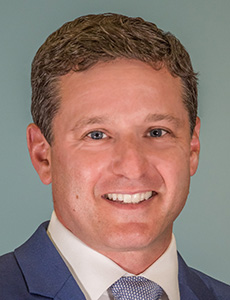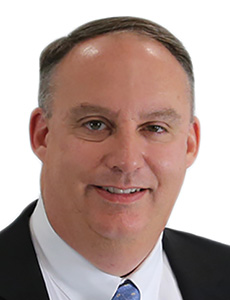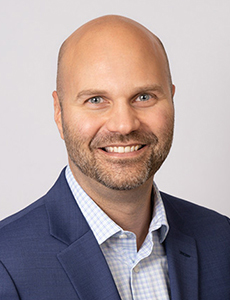A Grueling Pandemic, Vaccination Mandates and a Return to the Office: Get Ready for the Litigation

The COVID 19 pandemic and subsequent lockdowns caused an unprecedented disruption to workplaces around the world. But as workforces slowly return to the workplace, employers face challenges that are similarly unprecedented, and that may involve their Employment Practices Liability Insurance (EPLI) coverage.

Gregg Glick, senior vice president, Allied World
EPLI covers four broad areas: discrimination, harassment, retaliation, and wrongful employment decisions. According to Gregg Glick, senior vice president at Allied World, each of them could come into play.
Employees may feel discriminated against in being forced to be vaccinated despite their personal beliefs. They may feel harassed because they do or don’t wear a mask or get vaccinated.
If their hours are cut or eliminated because they won’t get vaccinated, they may feel retaliated against or claim wrongful termination.
For some, litigation may be unavoidable.
“I don’t want to say it’s naive, but to think it’s going to be completely non-litigious is probably a little bit of wishful thinking, because the playbook is really being written in real time,” Glick said.
Tom Hams, Aon’s EPLI practice leader, agrees. “It’s going to be very hard to avoid litigation, because it’s so cutting edge. There’s just nothing like this we’ve already experienced before,” he said.
That said, he doesn’t anticipate large losses: “I don’t feel like there’s much of a catastrophic exposure here. It’s just the fact that there’s just going to be litigation. So, it’s going to be more of a defense cost kind of thing.”
Factors to Consider
Complicating matters is the complex landscape of mandates and medical advice.
“There are various national, state, and local mandates that are really hard to follow because they all have different requirements. Even beyond the state level, there are differences at the county level and then certain office buildings and cities having further mandates,” Glick said.
Employers with unionized workers must also consider collective bargaining implications. And interacting with clients or suppliers may bring added complexity. “Most employers that I’ve run across that are heavily unionized are actively starting there first, because they know that it’s going to be a bit of a battle,” Hams said.
And, of course, the landscape is constantly changing.
“It’s a moving target,” said Mike Englert, senior vice president of commercial D&O for IronPro.
“The CDC guidelines seem to change, if not daily, then weekly. All the different states have different guidelines and mandates that are changing. All I can suggest is you need to stay current.”
COVID itself is changing, too, with new variants like Delta spawning new protocols.
The simple decision to reopen can be enough to cause problems, especially for companies that have run well with remote workers.
“The industry has definitely seen claims where folks were told, ‘Hey, you can’t work from home. We’re reopening,’ ” said Englert. Obviously, situations like that are going to breed litigation.”
Other important decisions involve mask and vaccine mandates.
Now that the Pfizer vaccine has been fully approved, it is likely that more employers will mandate it, like they mandate flu shots.
But mandates may have unforeseen consequences.
“It instantly brings politics into the workplace, which is a very complicated situation,” Glick said.
Glick suspects many employers may not be considering the long-term interpersonal implications.
“People who very well may have gotten along fantastically before COVID but had very opposing views that didn’t come out in the workplace, now, all of a sudden you’re making that front and center,” Glick said.
Those differing views could lead to heated disagreements.
“You want to make sure they have some good conflict resolution procedures in place on the HR side,” Englert said.
Employers also must decide how stringent to be in their mandates and the importance of consistency.
“You need clear and consistent guidelines, and you need to treat everybody the same,” Englert said.
Another concern is the mental and emotional toll of returning to an office that is now half empty.
And some of those empty desks may have belonged to people who lost their lives to COVID.
“Obviously, you want to deal with any type of loss, whether it’s from COVID or anything else, with compassion,” Englert said.
“So, you probably want to acknowledge it and if people need any additional counseling, you should see if you could offer that through your benefits partner.”
The Importance of Clear and Open Dialogue
One key to dealing with all these issues is communication, including with counsel.

Tom Hams, EPLI practice leader, Aon
“So much of this is going to be so legally oriented that it really gets back to counsel,” said Hams. “In this environment, it’s just all about vetting it legally.”
And having the right counsel.
“If your law firm isn’t equipped to answer these questions, then hopefully they can recommend someone who is,” said Glick.
Most EPLI insurers offer the clients other resources, as well, including libraries of relevant articles, interpretations of laws and best practices, and even hotlines they can call.
“Most carriers these days really want their clients to be utilizing those services because the best way to mitigate claims is to be proactive and have robust risk management services,” Glick said.
Communication with employees is also vital. Most employers have employee hotlines, counseling services, and other resources as part of their benefits packages.
“Smart employers are doubling down on reminding people that they have these resources and to absolutely reach out to them,” Hams said.
“I think they’ve done a good job in many instances during the pandemic to re-remind everyone that, ‘We understand that your stressed and you’re stretched thinner than ever. And you’re working in an environment that you’re not used to, so use these services.’ ”
That communication should go both ways, too.
“[Employers] need to have open communication with their employees to gather feedback from them of what’s working and what’s not working,” said Englert. &










